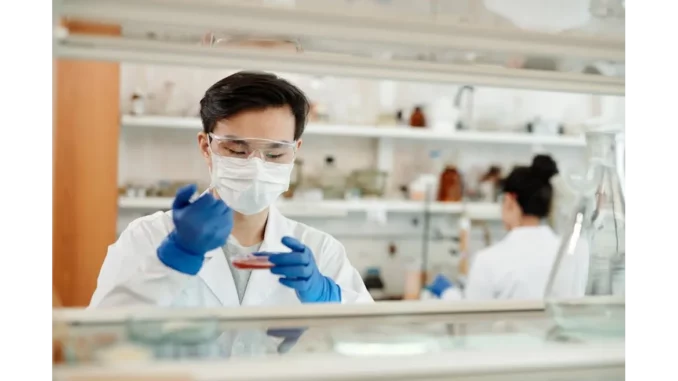
As the first rays of sunlight graced the Dallas skyline on 6 November 2024, a wave of anticipation swept through the city. Today marked a significant milestone, as Dr. Roderic I. Pettigrew, Ph.D., M.D., FAHA, was to be honoured with the esteemed 2024 Research Achievement Award at the American Heart Association’s Scientific Sessions in Chicago. To gain a deeper understanding of Dr. Pettigrew’s pioneering contributions, I had the privilege of engaging in a conversation with Dr. Emily Carter, a close colleague and collaborator at Texas A&M University. It is here that Dr. Pettigrew has made remarkable advancements in the synthesis of engineering and medicine.
Dr. Carter, an associate professor within the ENMED programme, welcomed me into her office with a genuine warmth that mirrored her respect for Dr. Pettigrew. Her enthusiasm for his groundbreaking work was immediately apparent as she shared her insights into their collaborative journey. “It’s truly inspiring to witness Dr. Pettigrew’s impact on both the academic and medical communities,” Dr. Carter began. “His innovative approach to integrating engineering principles with medical practice has set a new standard in the field.”
Dr. Pettigrew’s professional journey is punctuated by a series of groundbreaking developments that have redefined modern medicine. From his early tenure at Picker International, where he addressed the formidable challenge of imaging the beating heart using MRI technology, to his founding role at the National Institute of Biomedical Imaging and Bioengineering (NIBIB) at the NIH, Dr. Pettigrew has consistently been at the cutting edge of medical innovation. “His work on cardiovascular imaging was nothing short of visionary,” Dr. Carter noted. “He didn’t just advance the field; he transformed it. I remember him discussing the potential of four-dimensional imaging of the heart and blood flow years before it became a clinical reality. It was as if he could peer into the future.”
A consistent theme throughout Dr. Pettigrew’s career has been his visionary foresight. His leadership at the NIBIB sparked technological advancements that have greatly enhanced human health. Under his stewardship, the institute co-funded the Jackson Heart Study, which included a pioneering sub-study on cardiovascular imaging. Dr. Carter highlighted, “One of the most remarkable things about Dr. Pettigrew is his ability to bridge traditionally distinct disciplines. His ENMED programme at Texas A&M is a testament to this. It’s a unique initiative where students earn both medical and engineering degrees, equipping them to become true innovators in healthcare.”
As the discussion deepened, Dr. Carter’s excitement about recent developments inspired by Dr. Pettigrew became palpable. The Siemens Cima.X MRI, a project he envisioned, represents a significant leap forward in diagnostic technology. This advanced MRI scanner, designed to detect heart disease before catastrophic events such as heart attacks or strokes, exemplifies Dr. Pettigrew’s commitment to anticipatory healthcare. “The potential impact of this technology is immense,” Dr. Carter explained. “By understanding the microarchitecture of the heart, we can not only predict and prevent issues but also tailor treatments to individual patients. It’s all about extending healthy living, which is at the heart of Dr. Pettigrew’s vision.”
Beyond technological innovations, Dr. Pettigrew’s work is deeply rooted in a philosophy of transdisciplinary collaboration. He frequently invokes Einstein’s metaphor of the convergence of distinct disciplines as “branches of the same tree.” This ethos is central to his pursuit of impactful innovations. “Working with Dr. Pettigrew is like being part of a grand orchestra,” Dr. Carter mused. “Each discipline adds its unique voice, and under his guidance, they harmonise to create something truly groundbreaking. His vision of eliminating strokes and heart attacks through this approach isn’t just a dream—it’s a plausible future.”
As our conversation drew to a close, Dr. Carter reflected on the significance of the Research Achievement Award for Dr. Pettigrew personally and for the broader scientific community. “This award is a well-deserved recognition of his lifetime commitment to advancing medicine,” she said with pride. “But more than that, it’s a beacon for aspiring scientists and engineers. It shows them that with imagination and collaboration, the possibilities are limitless.”
Departing from Dr. Carter’s office, I was filled with renewed admiration for Dr. Pettigrew’s contributions. His innovative spirit and dedication to enhancing human health through the fusion of engineering and medicine are not only reshaping the present but also paving the way for the future of healthcare. As the world congregates in Chicago for the American Heart Association’s Scientific Sessions, it is evident that Dr. Roderic Pettigrew’s legacy is one of audacious discovery, transcending traditional boundaries, and inspiring a new generation of medical pioneers. His work serves as a powerful reminder that with a clear vision and collaborative endeavour, the future of medicine promises a healthier, more vibrant world for all.


Be the first to comment